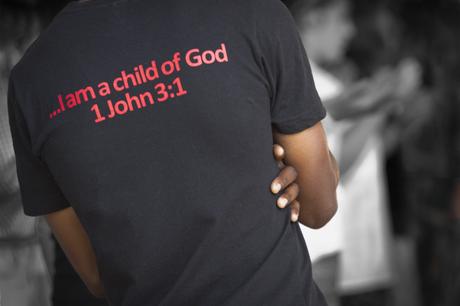 "There was a darker side to high tea I would only confront much later. This pleasure that so delighted me as a little girl was a survival of Pakistan's colonial past. The "British Raj" era, or the era of British rule, lasted for almost 100 years. It included the entire Indian subcontinent. Pakistan was born in 1948, and my parents arrived only five years later. I was completely blind to my privilege as a little, white, English-speaking girl. I cringe now at what I took for granted. Those who were white and English-speaking went to the head of the line. Those who were white and English-speaking could casually criticize Pakistanis without thought. We traveled where we pleased, we went first class or third class on trains -it was our choice. We were educated and would have a world of opportunity. I thank God for parents that had the conscience and determination to discipline me and teach me in various ways that I was not better than those around me. Still, with a strong personality and ego to match, those lessons sometimes fell on ears unwilling to listen and a heart that would need continual reminders that privilege is not something I earned or deserved." from Passages Through Pakistan © Doorlight Publications, March 2017
"There was a darker side to high tea I would only confront much later. This pleasure that so delighted me as a little girl was a survival of Pakistan's colonial past. The "British Raj" era, or the era of British rule, lasted for almost 100 years. It included the entire Indian subcontinent. Pakistan was born in 1948, and my parents arrived only five years later. I was completely blind to my privilege as a little, white, English-speaking girl. I cringe now at what I took for granted. Those who were white and English-speaking went to the head of the line. Those who were white and English-speaking could casually criticize Pakistanis without thought. We traveled where we pleased, we went first class or third class on trains -it was our choice. We were educated and would have a world of opportunity. I thank God for parents that had the conscience and determination to discipline me and teach me in various ways that I was not better than those around me. Still, with a strong personality and ego to match, those lessons sometimes fell on ears unwilling to listen and a heart that would need continual reminders that privilege is not something I earned or deserved." from Passages Through Pakistan © Doorlight Publications, March 2017 In recent years, I have done a lot of thinking about how I view the world. Part of this came as I began to write. The more I wrote, the more I articulated my perspective, I was reminded that that's what it was - my perspective. I viewed the world through a particular lens and that lens affected all my experiences. As I moved on to writing Passages Through Pakistan, an excerpt of which I've included above, I realized how my childhood was affected by growing up in a land that had been colonized not many years before I came into the world.
Another significant part of this journey has come through friendships with, and reading about, people whose life experience has been a stark contrast to my own, due to nothing other than the color of their skin. In other words, I realized that I experienced privilege of which I was completely unaware.
when our eyes are open, we can make wrong situations right.
I know many of us who are white may get tired of words and phrases, that there are times when we want to shout "Not me! I'm not like that!" when we are confronted by stories of racism and bias, but I've been learning how important it is to remember that I, as a white woman, walk through the world differently than people of color. I see the world through a lens of privilege. And because I walk through the world differently, I have a responsibility. It's not a responsibility born of guilt, it's a responsibility born of privilege.
It is with this in mind that I want to share a short, three-minute video. In this video three things stood out to me. They are clear and they are actionable.
- Point out injustice
- Recognize we walk through the world differently
- Influence people in our space
We think we can't change the world, but, when our eyes are open, we can make wrong situations right.
There is a verse in the Old Testament that I learned when I was a teenager. I have memorized it, quoted it, and written about it. Because it is what distinguishes empty religion from true faith. The prophet Micah has been asking rhetorical questions about sacrifice, wondering what God requires. In the verse I love, he answers his own question and the words have been recited and inscribed through time.
And that's exactly what we are called to do: Do Justly. Love Mercy. Walk humbly.

